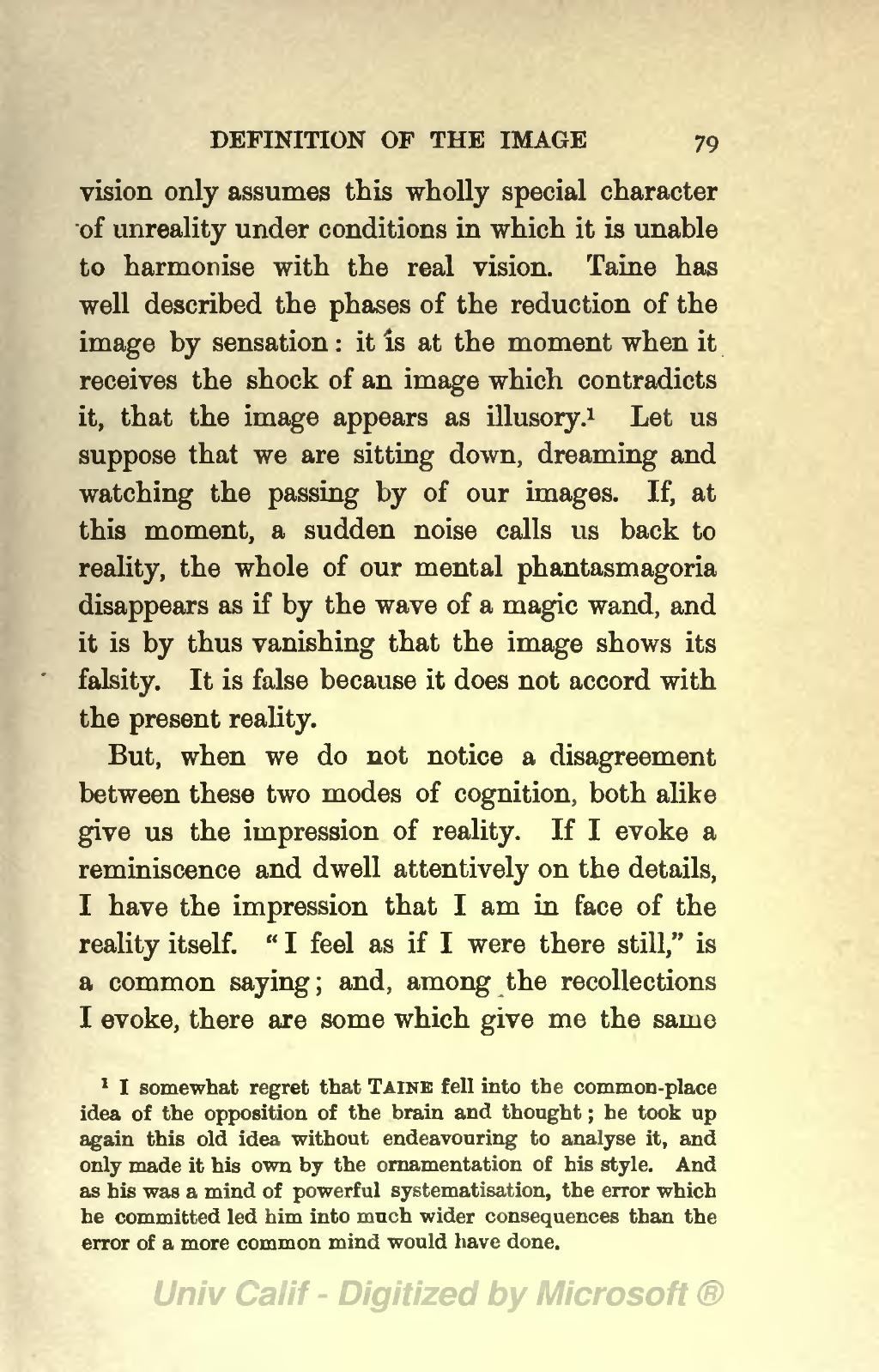vision only assumes this wholly special character of unreality under conditions in which it is unable to harmonise with the real vision. Taine has well described the phases of the reduction of the image by sensation: it is at the moment when it receives the shock of an image which contradicts it, that the image appears as illusory.[1] Let us suppose that we are sitting down, dreaming and watching the passing by of our images. If, at this moment, a sudden noise calls us back to reality, the whole of our mental phantasmagoria disappears as if by the wave of a magic wand, and it is by thus vanishing that the image shows its falsity. It is false because it does not accord with the present reality.
But, when we do not notice a disagreement between these two modes of cognition, both alike give us the impression of reality. If I evoke a reminiscence and dwell attentively on the details, I have the impression that I am in face of the reality itself. “I feel as if I were there still,” is a common saying; and, among the recollections I evoke, there are some which give me the same
- ↑ I somewhat regret that Taine fell into the common-place idea of the opposition of the brain and thought; he took up again this old idea without endeavouring to analyse it, and only made it his own by the ornamentation of his style. And as his was a mind of powerful systematisation, the error which he committed led him into much wider consequences than the error of a more common mind would have done.
